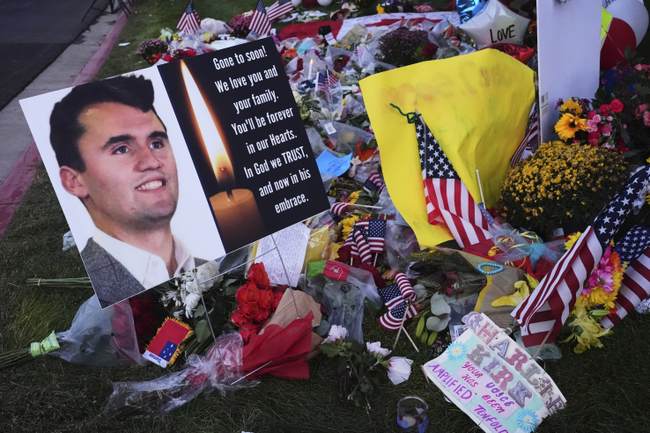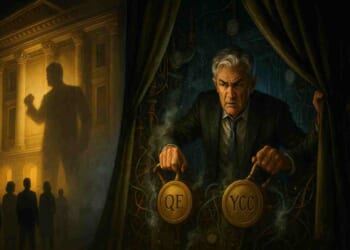
I’ve been a cop for more than 40 years, during which time I have waded through the aftermaths of many, many violent deaths. A murder case may take several years to meander its way from the crime scene, investigation, and then through the criminal justice system before it’s finally presented to a jury. In observing this process as often as I have, it never fails to strike me how the ripples of sadness radiating from such a crime can wash over so many people, even those only tangentially connected to the case.
Recent events call to mind a case in which one young man shot and killed another for what most people living safely away from gang territory would consider the pettiest of reasons. Three members of a certain gang went to the very heart of a rival gang’s neighborhood, where they played loud music, drank beer, shouted insults, and simply dared their rivals to do something about it.
One did, emptying the magazine of a semiautomatic pistol at the three, a single round from which struck the victim in the head, killing him. The other fifteen rounds in the gun struck parked cars, houses, and some playground equipment in a nearby park, where, we can be grateful, no children were playing at the time.
The victim inspires little sympathy. He and his two comrades did, after all, invite the challenge to their presence on the street, and judging from his criminal history, if he had not been killed that day he would have been some other day, or else killed someone else and been locked away for years and years.
Such is the cycle of life and death in some neighborhoods: one young man dead, another in prison serving a life sentence for first-degree murder. But the ripples of sadness didn’t just wash over the murderer, the murdered, and those close to them. The victim fell and died in front of a home occupied by a young married couple and their two small children, all of whom had arrived at home just moments before the shots were fired, moments that spared them from being in the line of fire. It was the young mother who witnessed the shooting and called 911, then over the next four years endured interviews with police and prosecutors and several court appearances before testifying at the trial.
On the witness stand, the woman tearfully recounted the events of that day, of arriving at home with her husband and two children, one of them an infant sleeping in a car seat, then hustling the kids into the house while avoiding eye contact with the three gang members drinking and shouting in the street. All of it was captured on nearby security cameras, the footage from which I viewed countless times. The body language of the young couple was familiar to anyone who lives or works in such a neighborhood. “We don’t want trouble,” they said without speaking, “please leave us alone.”
And they were left alone, or at least they were until the shots were fired and the victim fell and died about 30 feet from their front door.
Again, it had been four years since the murder when the woman testified, but everyone in the courtroom could see how profoundly she had been affected by the experience. The witnesses suffer too.
I tell this story here because you, gentle reader, very likely have in recent days been witness to not just one but two gruesome crimes. First came the August 22 killing of Iryna Zarutska on a Charlotte train, the horrifying video of which came to light two weeks ago and was all but inescapable to anyone spending even minimal time online.
Then, on September 10, came the murder of Charlie Kirk, the first news of which may have sent you, as it did me, to a computer in search of details. Despite my decades in police work, I wish I had not seen the video I chanced to find on social media.
I won’t supply links to videos of either of these crimes. If you are among those who haven’t seen them, consider yourself fortunate, for even I, despite decades of dealing with all manner of murder and mayhem, am disturbed at having seen them. Any decent person should be.
I here offer some advice to those decent people who have seen them, ignoring for now those so morally desiccated as to have found cause for celebration in the death of Charlie Kirk. The young mother I discuss above had the misfortune of seeing someone killed in front of her home, and though the victim was not someone she knew, nor was he, had he been killed elsewhere, someone whose death she would have mourned. But four years later she was nonetheless still deeply shaken by what she had seen.
So may you be in the coming days, weeks, or even years. Do not ignore or suppress the emotions you experience at having seen two promising young people killed by men every bit as contemptible as their victims were admirable. Resist the temptation to take things to mawkish extremes, but many others are experiencing emotions similar to yours. Find some of them and share your burdens together. “Give sorrow words,” Shakespeare admonishes in Macbeth. “The grief that does not speak doth whisper the oe’rfrought heart and bids it break.”
I know of but one greater source of wisdom than Shakespeare. If, as I’m sure Charlie Kirk would wish, you find relief from your pain in the Bible, so much the better. “Blessed are those who mourn,” Jesus says in Matthew 5:4, “for they will be comforted.”
May it be so.
Editor’s Note: Do you enjoy PJ Media’s conservative reporting that takes on the radical left and woke media? Support our work so that we can continue to bring you the truth. Join PJ Media VIP and use the promo code FIGHT to get 60% off your VIP membership!












